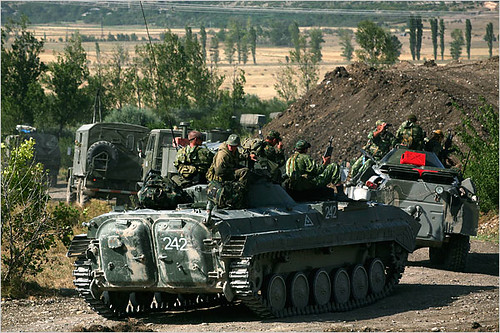Georgia is a developing country, but not among the poorest of the poor. It’s not Haiti or Bangladesh. Therefore, the displaced persons who fled probably have some level of savings, and left with some household items. They’re not going to be at immediate risk for starvation, but things will get very tough for displaced persons in about a month. After that, the major risk is winter. Cold weather in the Caucasus is extremely cold, and displaced persons are likely to be in inadequate housing without the funds to pay for heating fuel or the clothes and blankets needed to keep warm.
If you want to provide help to displaced persons, I offer the same advice I always do. Find an NGO that already operates in the region. I suggest CARE, which has been in Georgia for about 15 years, and CHF, which also has an established presence. Give to the organization’s general fund, so your funds will be used as effectively as possible.
You may also want to think about other victims of the crisis. Consider supporting groups who assist and protect ethnic Georgians in Russia, and ethnic Russians in Georgia. By all accounts, the nationalism is getting ugly on both sides, and resident minorities will be at risk. I suggest supporting the Open Society Institute’s (OSI) Russia organization to help ethnic Georgians in Russia and OSI’s Georgian arm for the inverse.
Lastly, I suggest supporting civil society, human rights, and independent media in both countries. Democracies don’t go to war like this.
Photo: Joao Silva for The New York Times


[…] blogs: The Donor Edition – Emergency Response: from Tales from the Hood How to Help in Georgia: from Blood and […]
[…] blogs: The Donor Edition – Emergency Response: from Tales from the Hood How to Help in Georgia: from Blood and […]